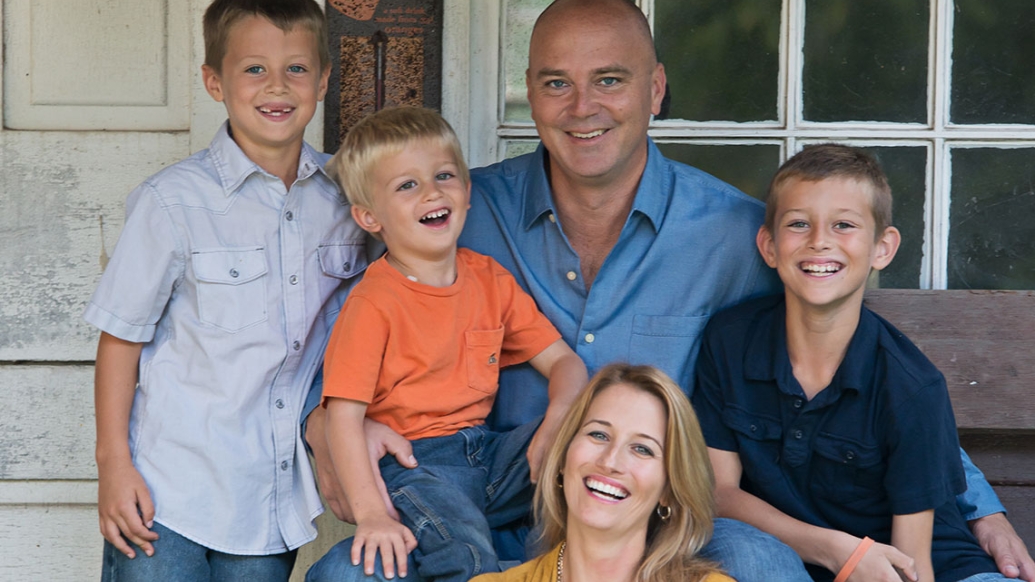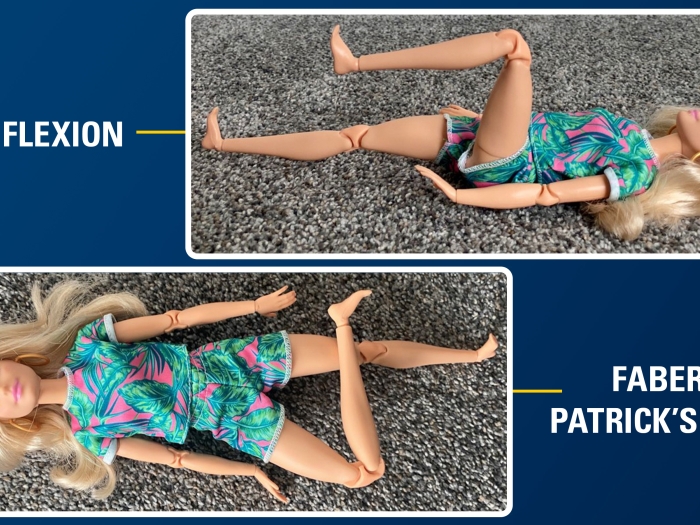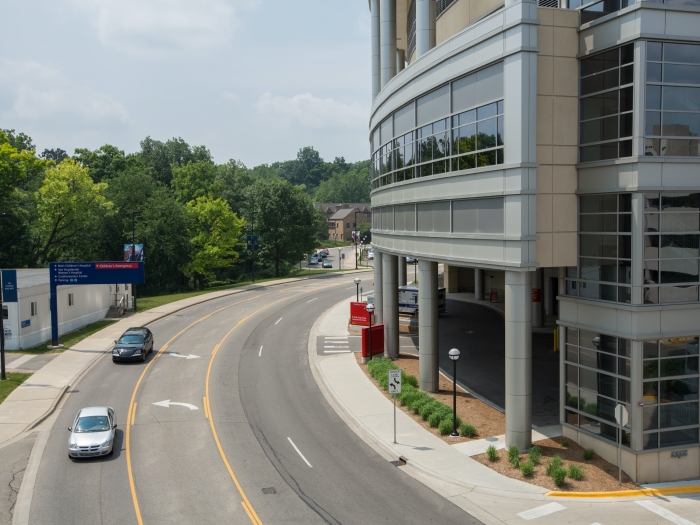Michigan Medicine becomes a center of collaborations involving pediatric brain tumor research, thanks to support from major donors and 1,500 community members.
Author |

Tammi Carr remembers every merciless moment of the day with precision: She and her husband, Jason, were taking their nearly 4-year-old son Chad to the Emergency Department at U-M on a warm September day in 2014. He had been behaving unusually, and on this day, he had fallen. They worried that he had a concussion.
On the way to the hospital, she called Valerie Opipari, M.D. (Fellowship 1990), chair of the department of pediatrics and communicable diseases at C.S. Mott Children's Hospital, to let her know that Chad was coming to the Emergency Department. She and Opipari had worked together for years when Carr was a major gift officer at Michigan Medicine, where she helped raise vital funding for the C.S. Mott Children's and Von Voigtlander Women's Hospitals that opened in 2011. When Chad was taken back for an MRI, Jason and Tammi went outside to the patio at Mott to wait. She took a photo of a plaque that recognized the work of former Michigan football standouts Charles Woodson, Brian Griese, and Steve Hutchinson in raising money for Mott during an annual golf event. Tammi texted the photo to the three former players and said, Look what you've done for this place.
She and Jason — a former Michigan quarterback and son of legendary football coach Lloyd Carr — ate lunch, then returned inside. The MRI was supposed to take two hours. Three and a half hours later, they finally saw the medical team coming out to talk with them. "I could tell the anesthesiologist had been crying," Carr recalls. Chad was going to be taken to the ICU. "I called Valerie and said, 'They found something; we don't know the details yet.' Valerie called back and said, 'It's not good. We're coming in.' Jason and I braced ourselves to hear that it was cancer. I called his dad and asked him to come in." (Chad later would be treated in the Coach Carr Pediatric Cancer Unit at Mott.)
Patricia Robertson, M.D. (Fellowship 1984), a pediatric neuro-oncologist, came to the hospital after hours and began to explain that Chad had a brain tumor — a very aggressive one. Opipari arrived, and she emphasized the severity; the tumor was an inoperable diffuse intrinsic pontine glioma (DIPG) that had a survival rate of zero. "I fell on the floor and screamed, 'I can't do this,'" Carr says. "Valerie told me, 'You're strong, you can do this.'"
Mentally exhausted, she crashed to sleep that night. When she woke up the next morning, her mindset had changed completely. "I woke up and had this strong feeling, this newfound sense that we've got to do something. It was God. That's the only thing that can explain it," she says. "I told Jason, 'We're going to make this big and shout it from the rooftops.'"
And with that, a movement began.
#ChadTough
The idea for the name of the movement and subsequent nonprofit came from one of Tammi Carr's friends, who sent her a photo of Chad with the text "Chad Tough" added to it. A small effort of friends and family quickly grew "in a completely organic way," she recalls. T-shirts were printed, fundraisers were organized, a hashtag took off. More people now knew of DIPG because it had a face: a 4-year-old boy with a mile-wide smile.
The funding has given U-M researchers, as well as collaborators at other institutions, the opportunity to focus on DIPG and other incurable brain tumors.
The Carrs began to work with Michigan Medicine even before Chad died in November 2015 at age 5. Conceptual conversations began in the summer of 2016 for a new Pediatric Brain Tumor Research Initiative (PBTRI), with the aim of making Michigan the center of research around the world on DIPG and other pediatric brain tumors. The ChadTough Foundation pledged $1.5 million to the initiative in November 2016. Gifts of $5 million each from U-M alumnus Ron Weiser, a longtime local businessman, former ambassador, and now a U-M regent; Wayne and Shelly Jones and the Jones Family Foundation (of which Tammi Carr is executive director); and an anonymous donor have helped Michigan get closer to the $30 million goal needed to create a center to be named in honor of Chad Carr, pending regental approval. Contributions made now will have an even greater impact, as Weiser has issued a challenge: He will match all PBTRI donations up to $1 million.
Some 1,500 donors have given to the ChadTough Fund at U-M, including many faculty and staff who were touched by the family's journey. "It's hard to overstate the level of personal connection," says Opipari, also the Ravitz Foundation Professor of Pediatrics and Communicable Diseases and professor of pediatric hematology and oncology. "Tammi has the capacity to harness all of the connections and resources to really make a difference. She put a face and a name to this disease in a way nobody else could."
The funding has given U-M researchers, as well as collaborators at other institutions, the opportunity to focus on DIPG and other incurable brain tumors. In addition, the connection to the Carr family affects researchers on another level. "DIPG is personal to people at Michigan," says Rajen Mody, MBBS (Fellowship 2000, M.S. 2003), the C.S. Mott Children's Hospital interim director of pediatric oncology/hematology/BMT. "Everyone has been touched by Chad's story, nationally and internationally. How can you not be touched by it, especially if you are at Michigan?"
Chad's Lasting Gift
It hasn't taken long for the PBTRI research funding to result in new discoveries. After Chad's death, the Carr family donated his tumor to research — "Chad's last physical gift," Tammi Carr calls it. The tumor was sequenced, and, in September, new research established that a mutation in a gene known as PTEN — not previously seen as a major DIPG driver — plays an early and important role in DIPG's genetic life story.
"The creation of the PBTRI and the momentum that has come from the ChadTough Foundation has been truly game-changing," says that study's lead author, Carl Koschmann, M.D. (Fellowship 2014), a pediatric oncologist at Mott. "It gives us so much flexibility to think outside of the box and has pulled researchers from other fields into thinking about DIPG." Mody says such research has made it clear that biopsies and autopsies are vital to the understanding of DIPG genomics and have now become standard at Michigan. Other research at Michigan Medicine focuses on precision oncology, immunotherapy, tissue banking, cellular therapy, and more.
Koschmann predicts that the battle against DIPG and other pediatric brain tumors will be fought, and eventually won, following a similar path to the one leukemia treatment took decades ago. "Children diagnosed with DIPG today have a median survival of 10 months. The DIPG research community is poised to follow the model that worked for leukemia, with the culmination of multiple innovations and therapeutic tools pushing survival further and further out, and hopefully leading to cures in the span of one generation."
Opipari says she hopes that we will see curative therapies in her lifetime. "DIPG is awful. You don't wish this on anyone," Opipari says. "But we can definitely say Chad's life had meaning. One day, we'll be able to say that, through his death, others had life."
Read more about the Pediatric Brain Tumor Research Initiative at michmed.org/pediatric-brain-tumors.
To contribute in support of the ChadTough Fund, please contact Maria Bertram in the Michigan Medicine Office of Development at [email protected] or 734-763-6184.





